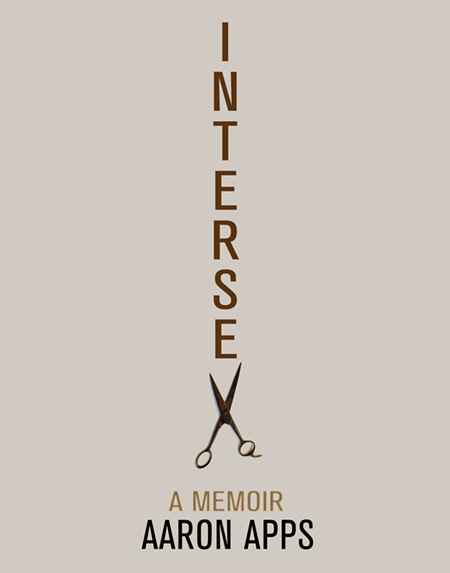 Thanks to reviewer Carleen Tibbetts, who writes
Thanks to reviewer Carleen Tibbetts, who writes
The cover imagery of Aaron Apps’ Intersex lets the reader know this will not be a tidy read. The scissors cutting upwards along the monolithic, phallic title . . . this is a messy read. The self is a sloppy congressing. This is a splicing and re-splicing and layering of the identity and image and self-meat. Having read this memoir immediately following reading Dear Herculine, these collections are so intimately linked and sutured together, I feel they should be read jointly. Although the latter wove letters to and narrative regarding another historical intersexed body, Herculine Bargin, both memoirs focus on problematic bodies, stark images of these problematic bodies, the shame surrounding them, and the nearly impossible language used to articulate the experience of being a body, let alone one that doesn’t cooperate or obey, one that cannot be easily categorized within the male/female binary…. On a more personal level than Dear Herculine, Intersex discusses the impotence of language ascribed to sex. “Hole or hole? Whole or hole? Hole or line? Prick or slit? Cock or cunt? Excuse my language. I mean, excuse my regression to genitals that hold language, but, I mean, there is nothing more tangled than the state of the perceiving sex . . . The ignored space, the ignorance space, the line off the main line, the line that frames the very way an I goes in the world.”
Tibbetts not only reads Intersex and Dear Herculine jointly, she reviews them as well. See her Dear Herculine review here. Read the rest of the Intersex review here. Or just go read the whole awesome issue of American Microreviews & Interviews.